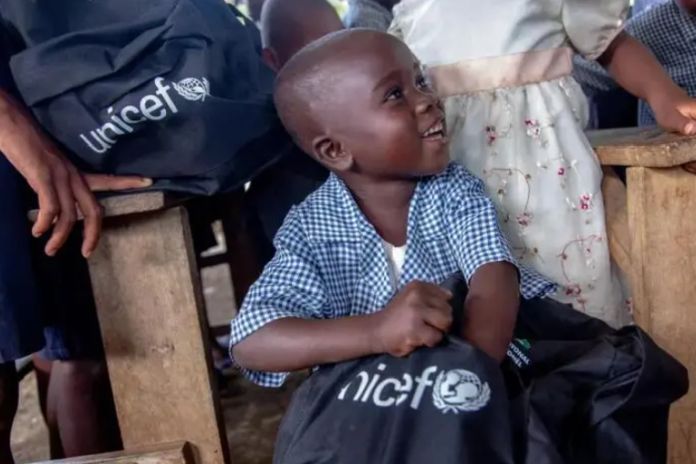Armed violence deepening malnutrition crisis for children in Haiti

By United Nations Children’s Fund
PORT-AU-Prince, Haiti – The alarming surge in armed violence in areas of Haiti is creating a heightened risk of furthering a malnutrition crisis in the country, UNICEF warned. The recent findings from the Integrated Food Security Phase Classification (IPC) analysis indicate an alarming 19 percent increase in the number of children estimated to suffer from severe acute malnutrition (SAM) in Haiti this year.
In addition, and as evidenced by the latest IPC analysis, 1.64 million people are facing emergency levels of acute food insecurity, (IPC Phase 4), which increases the risk of child wasting and malnutrition, especially in 8 areas of the country.
The ongoing armed violence across the Artibonite department and the West department, which encompasses Port au Prince, has restricted aid delivery and crumbled an already fragile healthcare system, posing an imminent threat to the lives of over 125,000 children at risk of SAM.
“The violence and instability in Haiti have consequences far beyond the risk of the violence itself. The situation is creating a child health and nutrition crisis that could cost the lives of countless of children,” said Catherine Russell, UNICEF executive director. “Thousands of children are on the brink, while life-saving supplies are ready to be delivered if violence stops and roads and hospitals are opened. This malnutrition crisis is entirely human-made. Basic security is urgently needed for the people of Haiti, for the life-saving services they rely on, and for humanitarian workers to reach children and families in desperate need.”
Since January, the deteriorating security situation in Haiti has continued to worsen the humanitarian crisis, with serious consequences for UNICEF’s ability to store, deliver, and restock desperately needed assistance.
Earlier this month, one of UNICEF’s 17 containers was looted at Port-au-Prince’s main port. The looted container held essential items for maternal, neonatal, and child survival, including resuscitators and related equipment. The ongoing insecurity has also left just two in five hospitals operational across the country. Meanwhile, only one in four health facilities are functioning in the Artibonite department, the nation’s main rice-growing region.
At the same time, the current insecurity in Port-au-Prince has made it virtually impossible for health and nutrition supplies to reach at least 58,000 children suffering from severe wasting in the metropolitan area. The Martissant road, the only humanitarian corridor from Port-au-Prince to the southern regions, remains blocked, leaving an estimated 15,000 children suffering from malnutrition at the brink of disaster.
And the insecurity plaguing much of Haiti’s capital is hampering the transport and resupply of Ready-to-Use Therapeutic Food (RUTF), used to treat children suffering from SAM, which could lead to supply chain disruptions and have serious consequences if the situation remains unchanged.
Despite the highly volatile environment, UNICEF is stepping up efforts to protect families and provide life-saving support, including for those who are trapped and cut off from essential services. Together with the Government and partners, UNICEF is helping to sustain national, regional, and – in the most insecure areas – neighbourhood systems and services that protect children and families.
Source: caribbeannewsglobal.com

